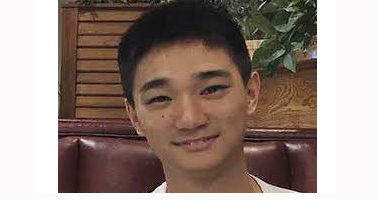Past Event: PhD Dissertation Defense
Xiao Xu, CSEM PhD Candidate, Computational Mechanics Group, Oden Institute, UT Austin
12:30 – 3:30PM
Friday Mar 11, 2022
POB 6.304 & Zoom
**This PhD Dessertaton defense is being presented LIVE in person in POB 6.304 and via Zoom.**
As a nonlocal extension of continuum mechanics, peridynamics has been widely and effectively applied in different fields where discontinuities in the field variables arise from an initially continuous body.
An important component of the constitutive model in peridynamics is the \emph{influence function} which weights the contribution of all the interactions over a nonlocal region surrounding a point of interest. Recent work has shown that in solid mechanics the influence function has a strong relationship with the heterogeneity of a material's microstructure. Therefore, we first propose an analytical method of deriving the peridynamic influence function for a one-dimensional initial/boundary- value problem in an elastic material with periodic microstructure. We demonstrate that the influence function derived from microstructural considerations is more accurate in predicting time dependent displacements and wave dynamics compared with standard influence functions used in peridynamic literature.
However, this analytical method that derives an accurate influence function analytically from a given microstructure requires lengthy derivations and complex mathematical models. To avoid these complexities, we then develop a data-driven regression algorithm to find the optimal bond-based peridynamic model to describe the macro-scale deformation of linear elastic medium with periodic heterogeneity. We generate macro-scale deformation training data by averaging over periodic microstructure unit cells and add a physical energy constraint representing the homogenized elastic modulus of the microstructure to the regression algorithm. We demonstrate this scheme for examples of one- and two-dimensional linear elastodynamics and show that the energy constraint improves the accuracy of the resulting peridynamic model.
In addition, we generalize the data-driven framework to the context of subsurface transport so that it can be applied for the discovery of optimal nonlocal models describing anomalous behaviors in subsurface solute transport. Using spatially sparse breakthrough curves recovered from fine-scale particle-density simulations, we learn the best coarse-scale nonlocal model using a nonlocal operator regression technique. A comparison with trained classical models and with black-box deep neural networks confirms the superiority of the predictive capability of the proposed model. Meanwhile, we also develop a domain decomposition method for the efficient simulation of nonlocal problems throughout our work.
Xiao Xu earned his BS in Mechanical Engineering at University of Science and Technology in China and his MS in Petroleum Engineering at UT Austin, where he works with Dr. John Foster in the Computational Mechanics Group at the Oden Institute for Computational Engineering and Sciences at the University of Texas at Austin. His research interests include peridynamics, nonlocal modeling, and computer science.
